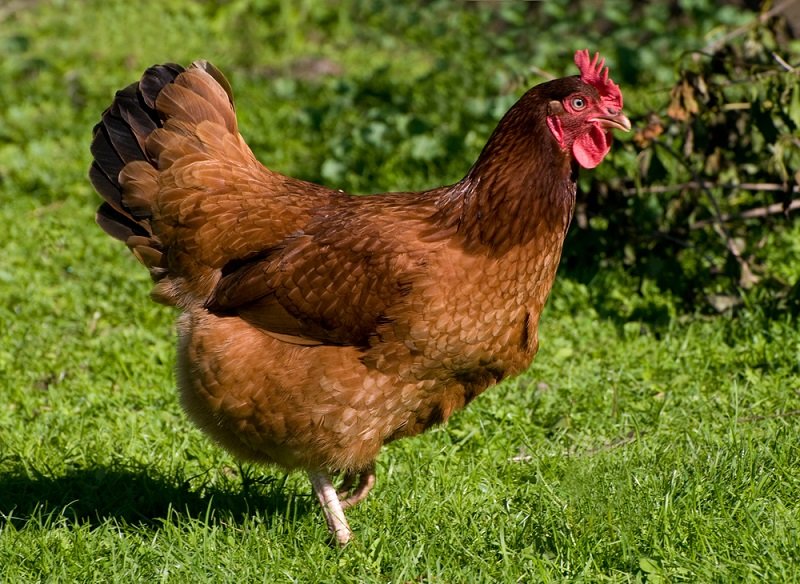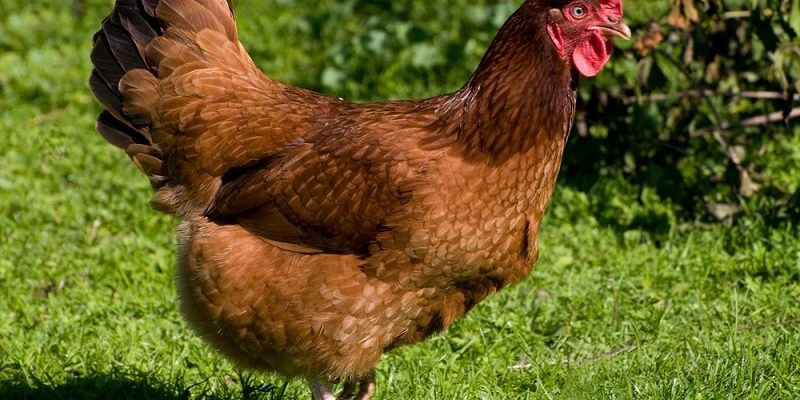
Imagine strolling through a peaceful backyard, where chickens roam freely, scratching at the dirt and pecking at the ground. That’s a typical day for Rhode Island Reds. They are natural foragers, and their diets reflect a mix of instincts and preferences. So, what exactly do they eat? And how do they hunt or forage for food? Let’s dig into the details!
Understanding the Diet of Rhode Island Reds
Rhode Island Reds are omnivores, which means they enjoy a wide array of foods. Their diet typically consists of grains, seeds, and insects, but they also love fresh greens and fruits. In a way, they’re like little feathered lawnmowers, constantly on a quest for tasty snacks. Here’s a closer look at what’s on their menu.
- Grains: These birds thrive on a diet rich in grains like corn, wheat, and barley. This provides them with essential carbohydrates for energy.
- Seeds: Sunflower seeds, pumpkin seeds, and other small seeds are favorites. They enjoy the act of pecking at them, which keeps their beaks busy.
- Insects: Rhode Island Reds love to hunt down bugs! They’ll chase after ants, beetles, and other creepy crawlies. This not only provides protein but also keeps them entertained.
- Greens: Fresh clover, weeds, and kitchen scraps like lettuce or spinach are great additions to their diet. These greens boost their health and make for a colorful plate!
- Fruits: They’ll happily munch on berries, melons, and even apples. Just be sure to offer these in moderation since they contain sugar.
By mixing up their diet with a variety of foods, Rhode Island Reds stay healthy and active. Plus, they enjoy the hunt, which is an essential part of their natural behavior.
How Rhode Island Reds Hunt for Food
You might be wondering how these chickens go about finding their meals. It’s quite a sight to watch—a mix of curiosity and determination. Rhode Island Reds use their keen eyes and sharp beaks to search for food in a variety of ways.
First off, they have a strong instinct to scratch the ground. Using their claws, they dig through the dirt, leaf litter, or grass, unearthing hidden snacks like seeds and insects. This digging behavior is a natural way for them to explore their environment. It’s like a treasure hunt, and every little scratch can lead to a tasty find.
Secondly, their foraging often involves teamwork. When one bird discovers a food source, their flock mates will quickly join in, and suddenly it’s a mini-feeding frenzy. Watching a group of Rhode Island Reds peck at the ground can be quite entertaining! They’re not just feeding; they’re socializing too.
Finally, don’t forget about their inquisitive nature. Rhode Island Reds often wander around looking for leftovers or scraps. If you’re out in the garden or backyard, they’ll follow you around, hoping for a chance at leftovers. It’s not just about eating; it’s an adventure for them!
Importance of Foraging for Rhode Island Reds
Foraging isn’t just a way for Rhode Island Reds to find food; it’s also essential for their overall well-being. When they engage in natural foraging behaviors, it benefits them in several ways:
1. Mental Stimulation: Foraging encourages important brain activities. The search for food helps keep their minds active and sharp.
2. Physical Exercise: Scratching and wandering around boosts their physical health. It strengthens their muscles and keeps them fit.
3. Natural Behavior: Allowing them to forage helps fulfill their natural instincts. This is vital for their emotional well-being, reducing boredom-related issues that can arise when confined.
4. Nutritional Variety: Foraging naturally introduces new foods into their diet. This diverse intake of nutrients contributes to better health and laid-back living.
Simply put, foraging is like a buffet for these chickens—an essential component of a happy and healthy life!
Considerations for a Balanced Diet
If you own or are thinking about getting Rhode Island Reds, it’s essential to provide them with a balanced diet. While foraging is important, it’s also crucial to ensure they receive necessary nutrients. Here’s a quick guide on how to maintain that balance:
- High-Quality Feed: Start with a good layer feed that contains balanced protein, vitamins, and minerals. Layer feed usually has around 16% protein, which is ideal for egg production.
- Fresh Water: Always offer fresh, clean water. Dehydration can be a significant issue, especially during hot weather.
- Scratch Grains: Supplement their diet with scratch grains as a treat. It’s a fun way for them to forage while giving them extra energy.
- Treats in Moderation: Be cautious with treats. Too many fruits or other high-sugar snacks can lead to health problems.
- Grit: Don’t forget to provide grit! It helps them digest food properly, especially if they’re eating a lot of seeds or grains.
With these considerations, your Rhode Island Reds will thrive and remain happy while exploring their foraging options.
Best Foraging Practices for Rhode Island Reds
If you’re looking to encourage more natural foraging in your backyard, here are some best practices you can adopt:
1. Free Range: If possible, let your Rhode Island Reds roam freely in a safe area. This allows them to explore and find all sorts of tasty treats in the environment.
2. Plant Foraging Options: Consider planting safe edible plants like clover, dandelions, or other chicken-friendly greens. This can provide a natural foraging habitat.
3. Use Feeding Stations: If free-ranging isn’t an option, set up feeding stations with scattered grains or seeds. This simulates foraging behavior and keeps them engaged.
4. Rotate Pasture: If you have the space, rotate your chickens on different patches of land. This provides fresh foraging opportunities, and they can help with pest control!
5. Incorporate Enrichment: Add items like hanging vegetables or puzzle feeders. These can stimulate their natural foraging instincts and keep their minds and bodies active.
By providing a foraging-friendly environment, you’ll encourage health and happiness in your Rhode Island Reds, and who doesn’t want that?
Watching Rhode Island Reds hunt and forage for food is not just entertaining; it’s a beautiful reminder of their nature. These birds have a unique relationship with their environment, and their diets reflect their instincts. By understanding what they eat and how they hunt, you’ll have a deeper appreciation for these wonderful creatures.
So, the next time you see a Rhode Island Red clucking around your yard, remember: they’re not just looking for food—they’re on their own little adventure. Whether they’re scratching the ground for insects or pecking at tasty greens, each moment is a part of their natural behavior that keeps them thriving. Embrace it, and enjoy the journey alongside them!

